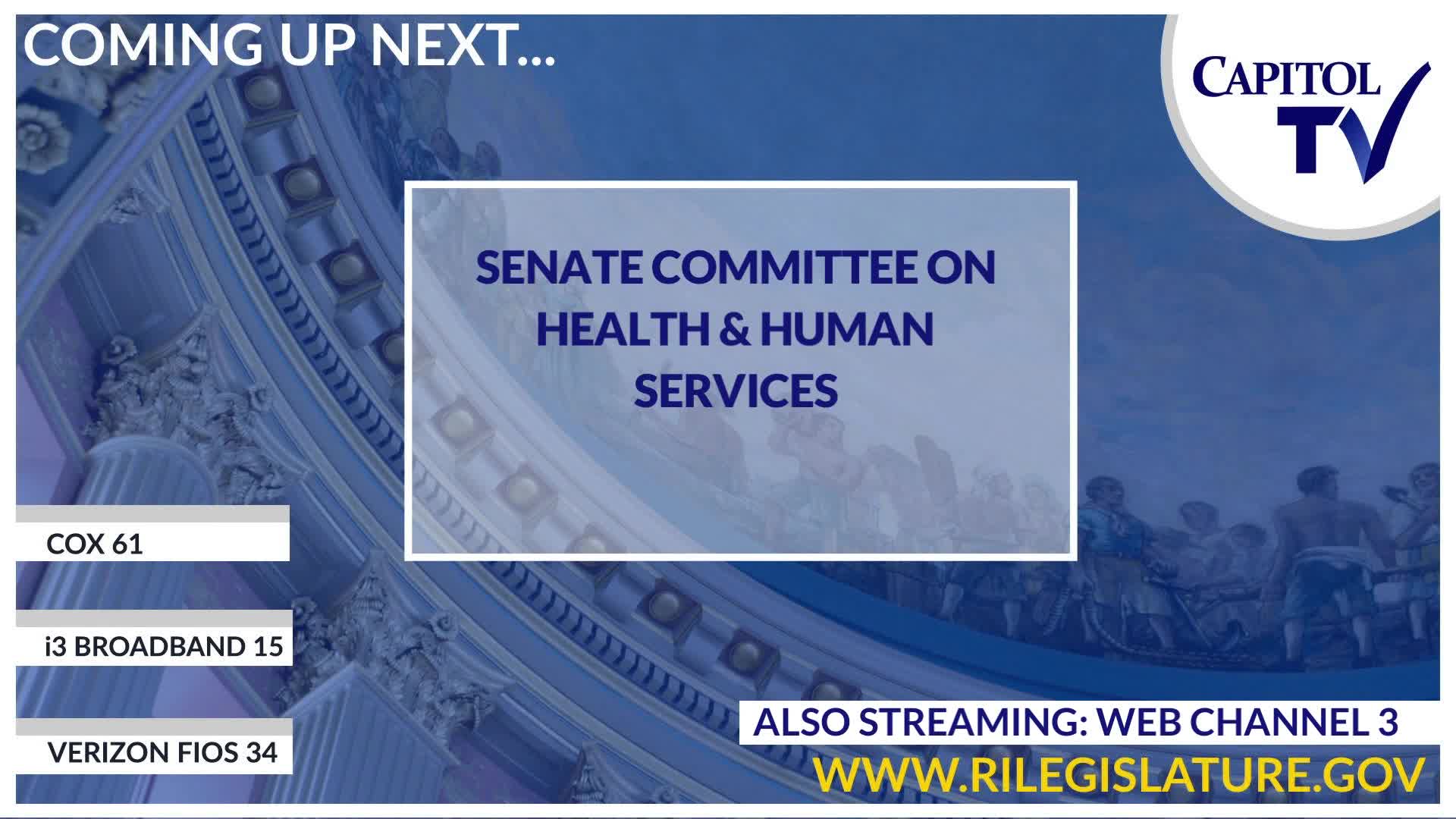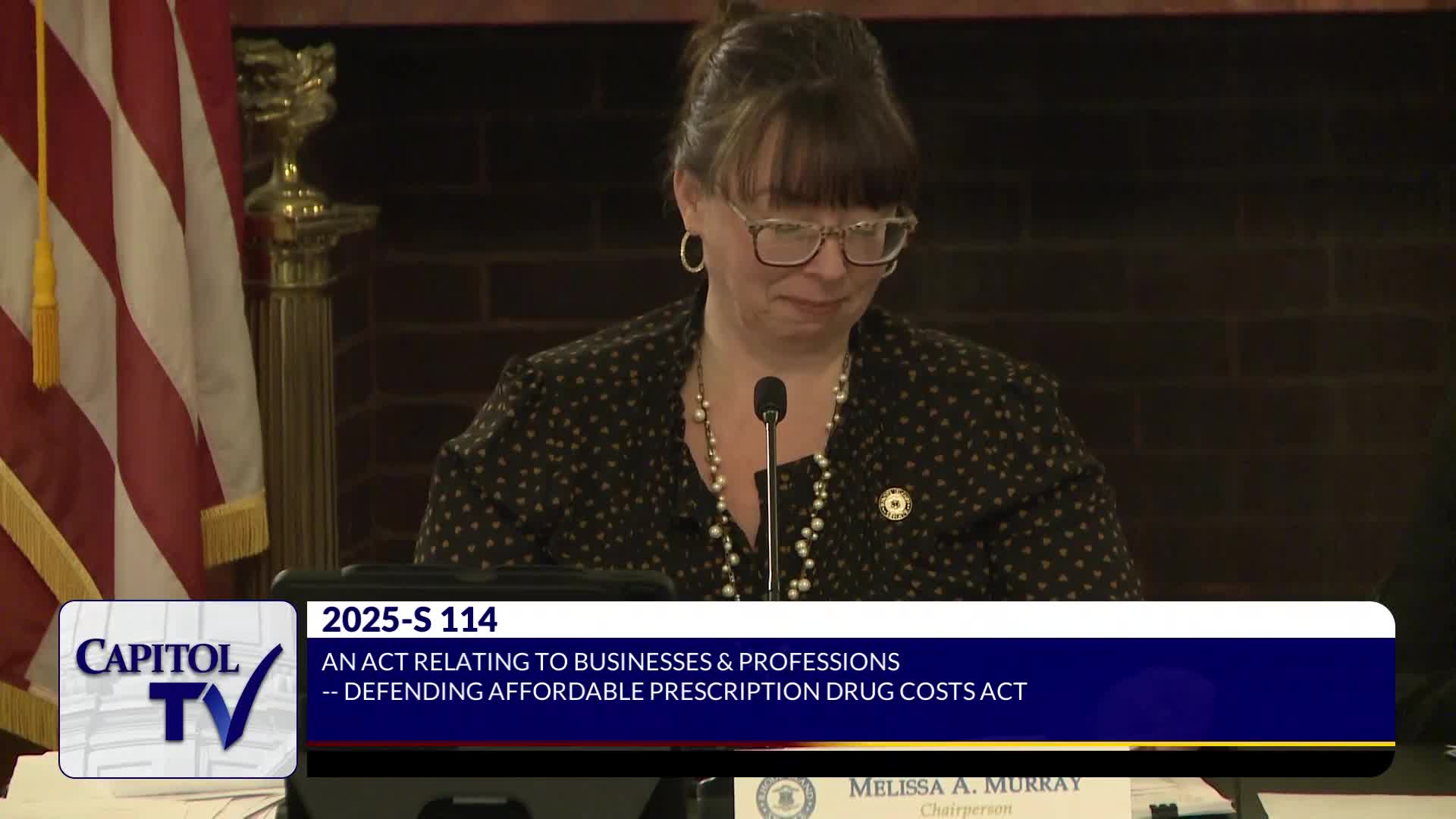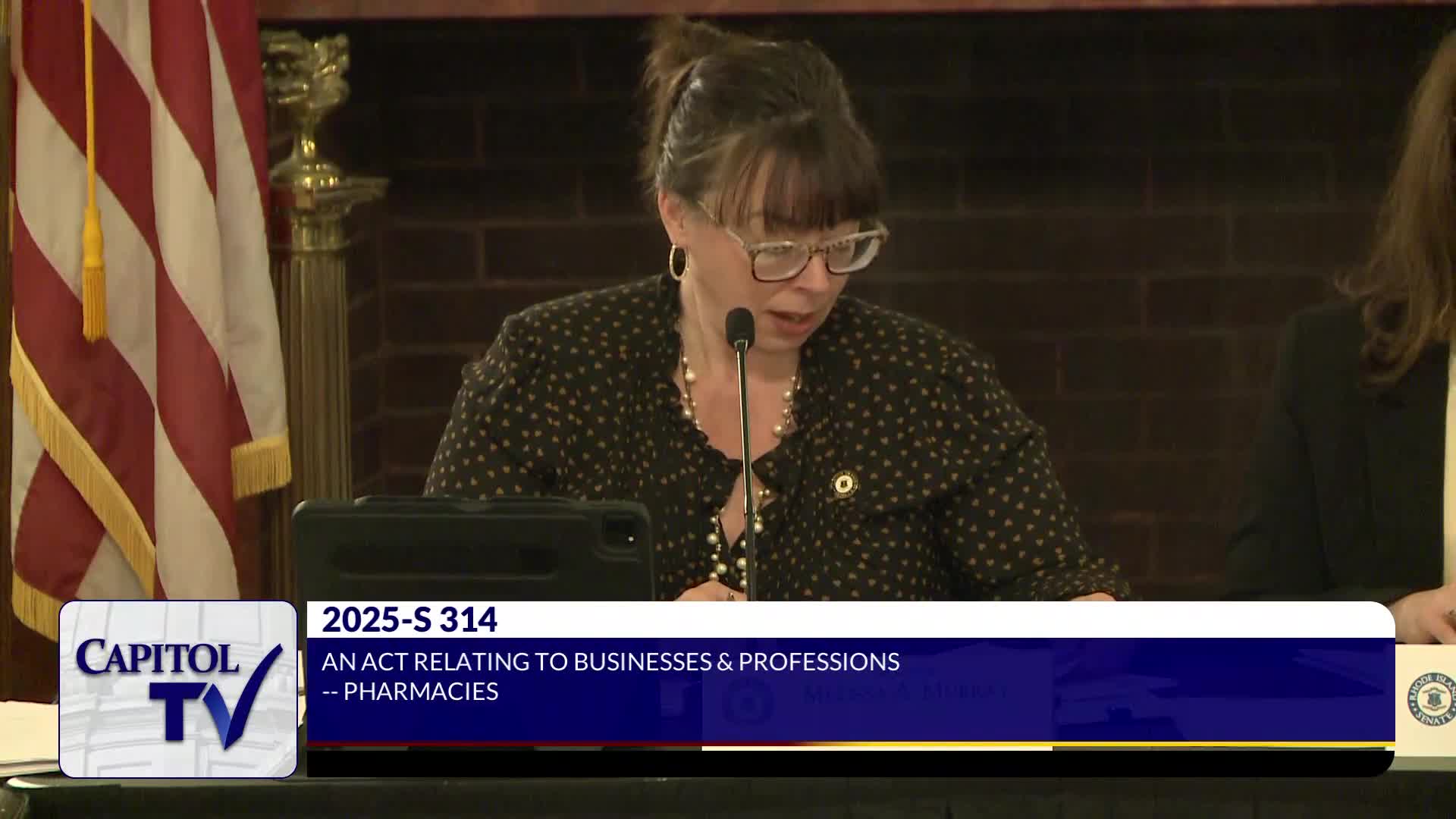Article not found
This article is no longer available. But don't worry—we've gathered other articles that discuss the same topic.

Senate health panel holds multiple PBM reform bills targeting spread pricing and reimbursement transparency

Hospitals, health centers and pharmacists clash over 340B contract pharmacy protections as Senate panel reopens bill

